Georgie Burgess
27 November 2025: The University of Canberra became the first Australian host of the International Cognitive Stimulation Therapy (CST) Conference, when experts from across the world gathered on campus last week.
A seven-week structured program, CST is aimed at improving thinking skills, mental engagement, and quality of life for people with a mild to moderate dementia diagnosis – it was developed by Professor Aimee Spector from University College London, who is currently taking part in the University’s Distinguished Visiting Fellow program and was a keynote speaker at the event.
The conference was hosted by the University’s Centre for Aging Research and Translation (CARAT) team.
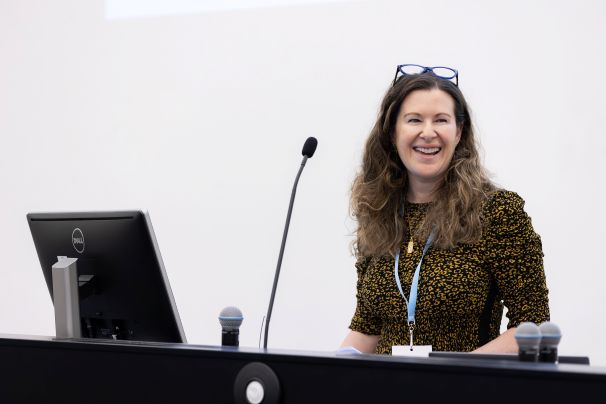
Professor Spector said she welcomed the opportunity to engage with different perspectives and audiences who may not usually get the chance to attend the conference, which has previously been held overseas.
“There was so much positive feedback from participants, everyone was really engaged and there were lots of discussions about implementation,” Professor Spector said.
“It was great to see so many clinicians keen to go home and begin implementing CST across Australia.”
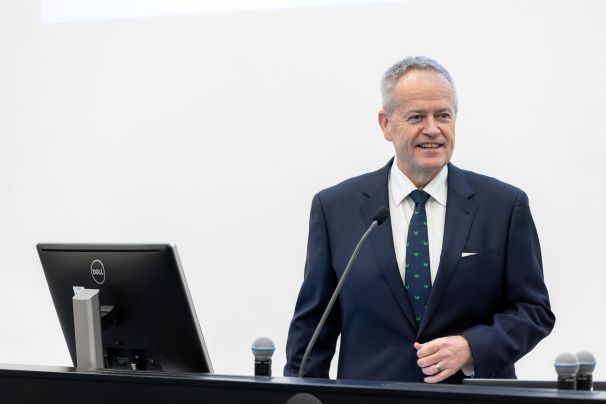
The University’s Vice-Chancellor, the Honourable Bill Shorten, opened the conference and expressed his pride in the work being done by CARAT, which created the Sustainable Personalised Interventions for Cognition, Care, and Engagement (SPICE) program in 2022 in collaboration with Canberra Health Services which is structured largely around CST.
As well as acknowledging the contributions of PhD student Robyn Lewis who both initiated and now leads CST Australia and Isobel Sanger who is not only a part of CARAT but also Australia’s only CST Master Facilitator Trainer.
“Their incredible work has led to 300 new CST facilitators across the country in just the last two years, and I understand that without their passion and energy this conference would not have happened,” he said.
“We want Australia to be a country where people who live with dementia are valued, have autonomy, feel supported, are able to participate in the community and remain connected to society – this work will help achieve just that.”
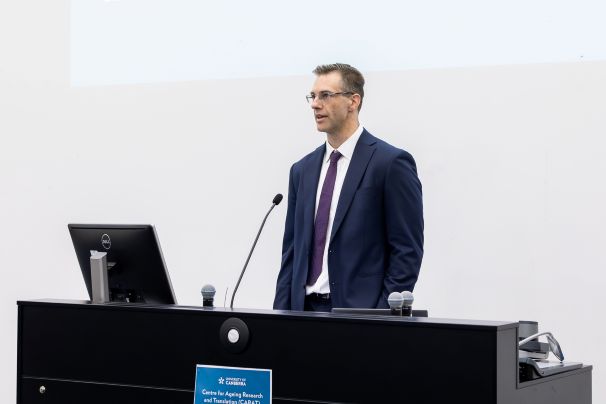
SPICE’s lead researcher Associate Professor Dr Nathan D’Cunha reflected on the strength of the presentations made over the day-long conference, which included addresses from the London School of Economics and Political Science’s Professor Martin Knapp, University of Reading’s Associate Professor Gloria Wong and University of Auckland’s Senior Lecturer Kathy Peri.
“People were able to get a really wide range of information, from practitioners to researchers or those interested in policy. The conference did a really good job of covering all those areas and providing something for everyone,” he said.
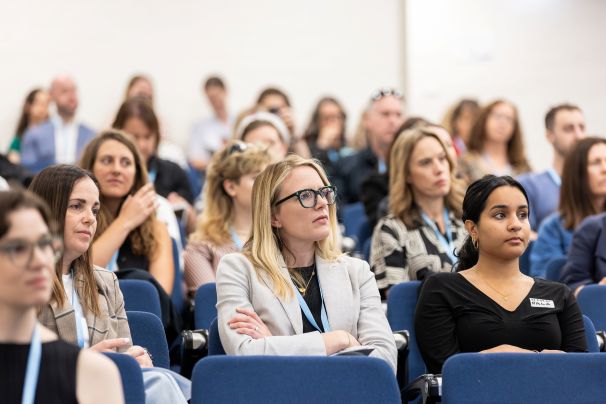
Dr D’Cunha also said he hoped that the interest from key stakeholders such as Dementia Australia, Dementia Training Australia and the Department of Health, Disability and Ageing would help further the implementation of CST.
“The conference gave them the chance to learn about and be exposed to the program in a way they haven’t been before. It shows that there is a strong movement behind and interest in CST,” he said.
“I think that’s going to have really long-term benefits for CST here in Australia.”
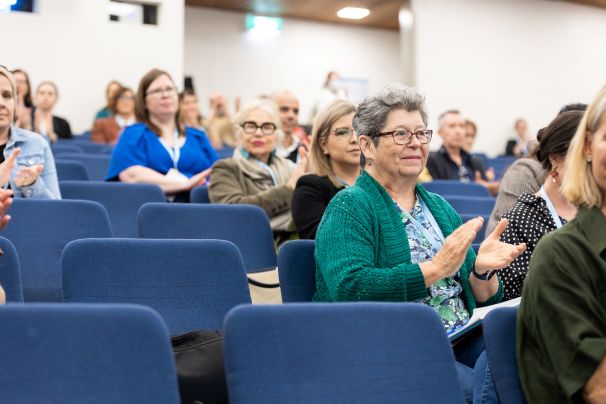
For Professor Spector, the chance to engage with participants from the SPICE program was a unique opportunity.
“There were some caregivers who had really useful insights when we were doing the workshops and talking about how to manage specific scenarios. Getting this firsthand experience is always invaluable,” she said.
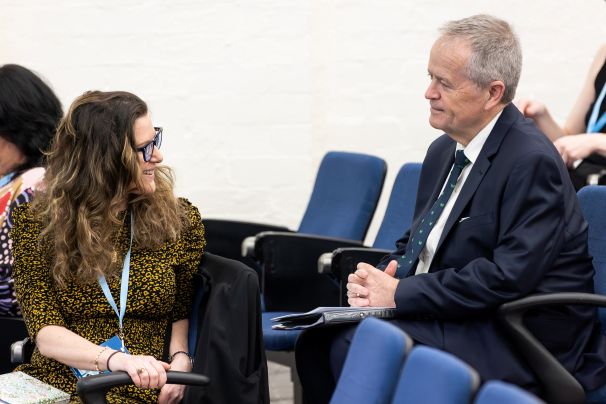
Heading back to England next month, Professor Spector is determined to carry on working alongside Dr D’Cunha and the CARAT team, to continue her support for the growth of CST in Australia.
“What we need to do now is work with the system in Australia so it’s more accessible – there’s definitely a huge drive among professionals to get trained and deliver CST, because they can see the benefits. So now we need to work with the system to make it more enabling and increase access for individuals,” she said.


